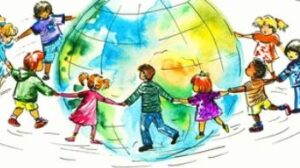 Being ostracized on the worldwide tsunami of social media is horrifying and in some cases life altering. Today such public boycotting or shunning is known as cancel culture. Whether based on fact or fiction, it is infectious as a plague of locust and spreads like uncontrolled wild fire. Unfortunately, parts of social media perpetuate the negative influence of cancel culture, like arming an ill-informed mob for a street fight.
Being ostracized on the worldwide tsunami of social media is horrifying and in some cases life altering. Today such public boycotting or shunning is known as cancel culture. Whether based on fact or fiction, it is infectious as a plague of locust and spreads like uncontrolled wild fire. Unfortunately, parts of social media perpetuate the negative influence of cancel culture, like arming an ill-informed mob for a street fight.
I must admit, I was snared after reading about an unvaccinated father and resident of a Ronald McDonald House in Canada with a 4-year-old son with leukemia. A new policy enforced this month required vaccines for all residents, workers and visitors, necessary to protect the families from the risk of getting the coronavirus, which could jeopardize health outcomes for kids with critical illness.
In frustration, the father created a Facebook video post that went viral accusing the House of being “wicked and vile” for requiring relocation. Cancel culture immediately posted “Ronald McDonald House to evict families with young children who are unvaccinated” denouncing the facility, and creating a #BoycottMcdonalds campaign. Talk about fanning the flames of a cancel culture wild fire.
Social Media can be an uncaring agent delivering messages to our conscious or subconscious. Of course, claims about sick children are particularly likely to capture attention and spread widely, even if they aren’t true, because they are emotional and contain a moral message. Before I knew it, armed with only the loose information spewed by cancel culture, I became part of the ill-informed mob.
But after further investigation I came to realize that both the Ronald McDonald House and this frustrated father were blameless. Politics aside, the Houses stance on protecting their critically ill was absolute. But I also understood the feeling of powerless parents, fighting for the lives of their children using any means available. Actually, cancel culture was the true villain here, taking control of this sad situation and giving it an online toxic life of its own.
This cultural fall from grace cannot be fixed overnight. Maybe we have to train ourselves to see what deserves attention and what does not. Recognizing the need for compassion. Letting our disagreements challenge us, not divide us. Directing us to critical thinking and hopefully we evolve into more kind and tolerant citizens of the world.
You may say I’m a dreamer. . . but I’m not the only one.
